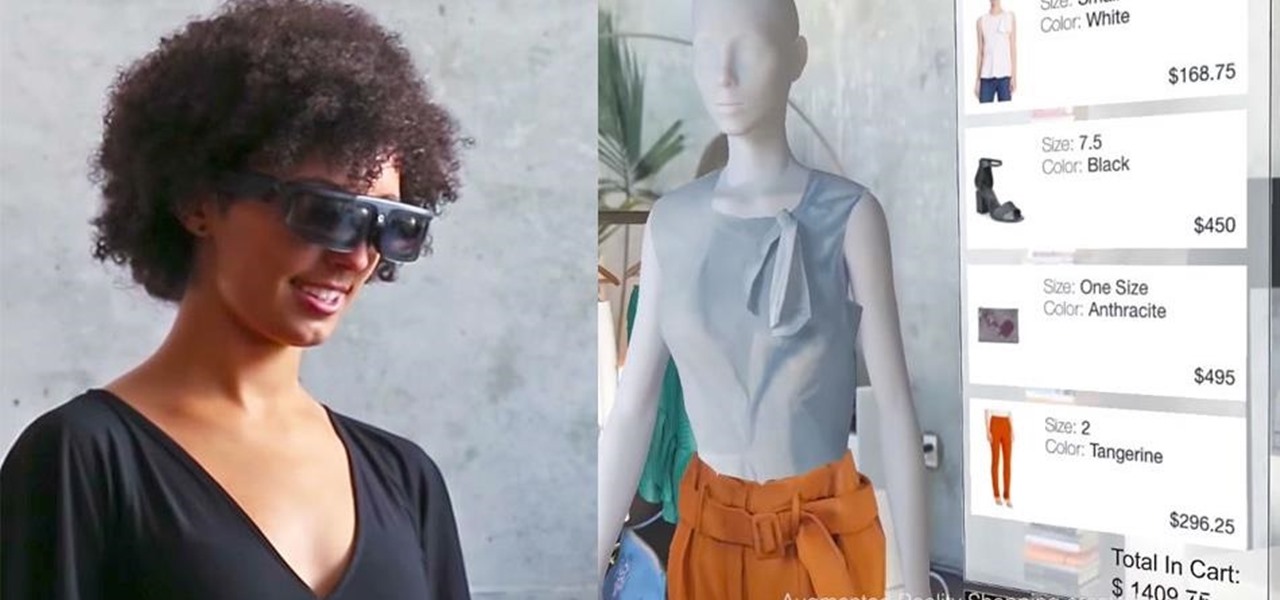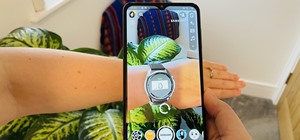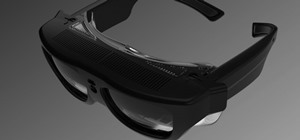As the level of data being generated grows exponentially, past the Information Age and into the coming Hyper-Information Age of immersive computing — as resistant as many of us are to the idea — personal data security is becoming a necessary consideration in our everyday lives. Recognizing this, Mastercard, Qualcomm, and Osterhout Design Group have teamed up to show what secure shopping could look like in the very near future with iris authentication.
Still lingering in the waves of trending lists and blog references, is the recent Equifax hack, a data breach that exposed the personal information of nearly half of the US population. As a credit bureau, the quality and quantity of data held by a company like Equifax made the hack far worse than one such as the Yahoo hack.
But unlike some large companies trusted with sensitive user data, as a credit card company, Mastercard has a uniquely sensitive perspective on the security of its customers' personal data. This week in Las Vegas, Nevada, Mastercard demoed a new augmented reality-based shopping experience, featuring the R-9 by ODG — smartglasses based on the Qualcomm Snapdragon 835 processor with Qualcomm's XR SDK and iris authentication technology. Together, these companies have created a prototype for secure biometric-based authentication in an AR shopping experience.
At Mastercard, we are seeing major shifts in how commerce is conducted, as people lead increasingly connected, digital lifestyles. As the physical and digital worlds blend together, we are focused on developing solutions that provide merchants with the ability to accept payments across all technology platforms possible — in-store, in-app, online, and in AR and VR — to help drive how people will experience shopping and payments in the future.
The iris authentication prototype being proposed by this partnership could bring with it not only a smoother shopping experience but also a new level of security, while at the same time providing some relief from the pains of personal information security.
Qualcomm Technologies' iris authentication and extended reality technologies for Snapdragon 835 are designed to support a future generation of contextually aware commerce experiences using secure, augmented reality. We are delighted to work with Mastercard and SAKS Fifth Avenue to showcase new AR experiences on ODG's sleek smartglasses based on our Snapdragon 835 Mobile Platform. Our commitment to innovation has the potential to deliver more personalized in-store experiences in the future.
The idea of iris authentication and biometric-based security is not new. It's something we have, as a society, seen throughout our lives on television and in science-fiction. And while generally tied to underground government groups in these fictional works, there is a sense of familiarity that comes with it. But despite these familiar visions of a near future, the one area that remains a mystery in the new world of AR-as-computing-interface is security and how to protect these new AR users from hackers.
ODG is delighted to work with Mastercard and Qualcomm Technologies, fellow leaders in their respective fields, to offer a look into the future of shopping and purchasing habits. This solution showcases the transformative nature of augmented reality in the retail space and highlights the power and performance of ODG smartglasses and the unparalleled potential for headworn AR to change the way we see and experience the world.
What we do know is that the worlds of hacking and security have always been tied closely together. That is to say, a good security specialist is also, at heart, a hacker. However, the often strained relationship between these two sectors fosters a perpetual game of one-upmanship. As soon as the security world finds a new way to secure its treasure, the hackers find a way to get through that security wall and steal that treasure.
But as AR adoption spreads and new hardware iterations become available, due to the very different approaches to input with devices like smartglasses, the security paradigms of old will yield increasingly poor experiences in AR. Password length and complexity will continue to grow, just as traditional typing input decreases, with the once tactile keyboard of old becoming completely virtual. From that perspective, looking not too far into the future, it appears Mastercard understands what's necessary: a biometric solution that is duplication resistant, easier to input, and an overall better security solution for all.
Sure, the hackers will still come, but they'll need to learn an entirely new language of immersive computing hacks, in real-time, along with the rest of us.
Just updated your iPhone? You'll find new features for Podcasts, News, Books, and TV, as well as important security improvements and fresh wallpapers. Find out what's new and changed on your iPhone with the iOS 17.5 update.

























Be the First to Comment
Share Your Thoughts